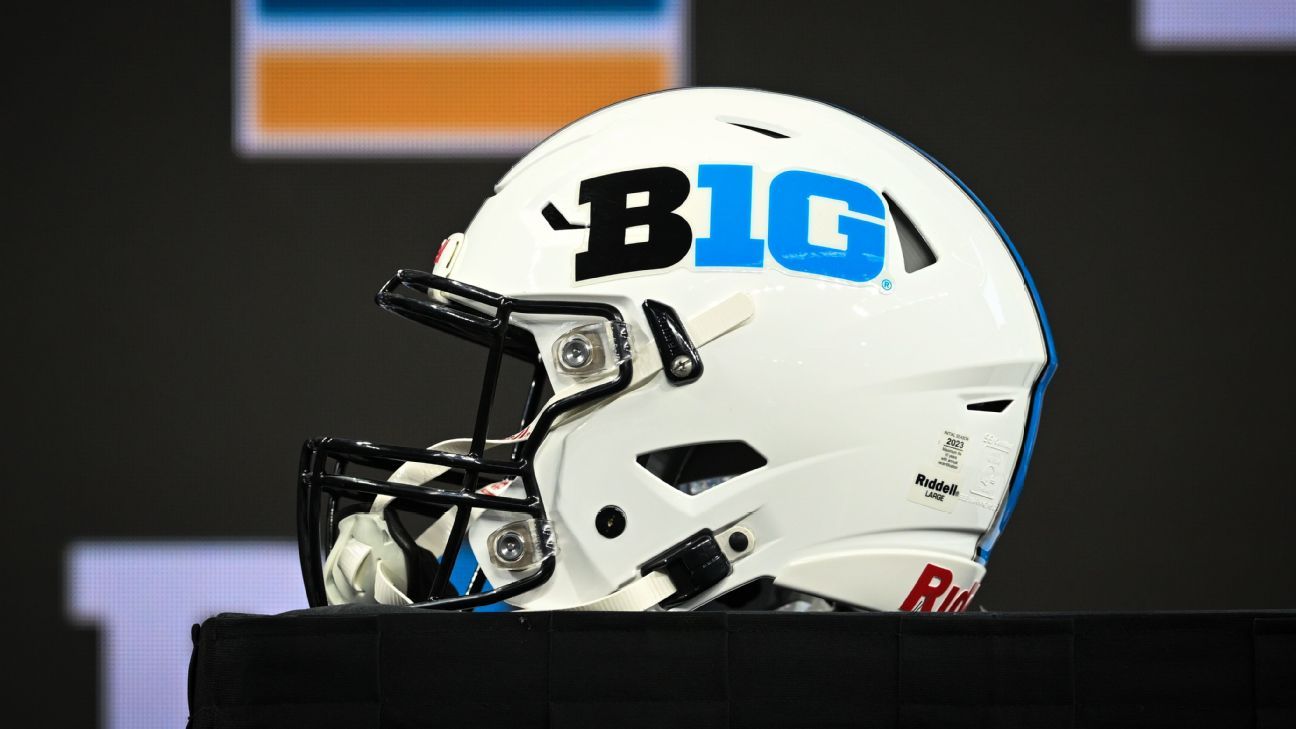No vote on Big Ten capital deal; some urge caution


Dan Wetzel
Dan Wetzel
ESPN
Oct 16, 2025, 08:06 PM ET
A decision on the Big Ten’s proposed private capital deal does not appear imminent in the wake of a Thursday meeting of the league’s presidents and chancellors.
No vote was taken on the conference call, as leagues rarely do so on any issue that won’t be unanimously approved.
The Big Ten said in a statement that conversations are ongoing.
Earlier Thursday, University of Michigan regents criticized the proposed deal, illustrating how tenuous completing it will be. Regent Mark Bernstein dubbed the deal “a payday loan.” Another regent, Jordan Acker, compared it to opening a new credit card to pay off debt.
The plan calls for the league to spin off a new entity, Big Ten Enterprises, that will house all leaguewide media rights and sponsorship deals. A University of California pension fund will receive a 10% stake in exchange for a cash infusion of over $2 billion to conference athletic departments. The deal also would extend the league’s grant of rights until 2046.
The Big Ten is in the middle of a seven-year, $7 billion media rights package that runs through 2030. Numerous schools, however, need money from soaring operational costs, revenue sharing with athletes and significant debt on stadium constructions and renovations.
Michigan and Southern California have emerged as opponents of the groundbreaking deal, details of which are still being negotiated. The deal does enjoy support among a majority of league schools, as well as from Big Ten commissioner Tony Petitti. Whether the deal can pass without unanimous support is unknown.
In its statement Thursday, the Big Ten said it “remains committed to modernizing the operations of our conference, strengthening conference stability, preserving Olympic and women’s sports, and enhancing the student-athlete experience.
“The conference has provided an option from a nonprofit partner — not private equity — that meets those objectives. Ultimately, it is the decision of the Big Ten member institutions’ presidents and chancellors to decide if it’s the right opportunity and those conversations are ongoing.”
At a previously scheduled meeting of Michigan trustees, multiple regents blasted the proposal as shortsighted and not addressing college athletics’ underlying spending problem. Acker said it was the latest short-term strategy to raise money. He noted the league has expanded four times since 2011 to generate more revenue but again is being told it has to rush into another deal.
“Now, we have to do this deal; giving away 10% of future media revenue for the next 21 years even though no one knows what college athletics or media will look like?” Acker said.
Acker brought up regrets inside the ACC for a 2013 deal that extended its grant of rights through 2036.
“The ACC once thought a long-term deal was a good idea,” he said. “Within a few years, they were suing each other.”
Acker said Michigan hired third-party “consultants and banks,” including the multinational financial institution Barclays, and all were “unequivocal in their opposition. They recommend different ways to address deficits and raise money. They say we can do it more efficiently without selling assets.”
“We understand the responsibility to lift all boats and to help schools that need money to get that money,” Acker said. “It just has to be on the best financial terms possible. The Big Ten doesn’t need to be sold to save college sports. It needs to lead to save college sports.”
Bernstein followed by criticizing the league for demanding quick action, claiming the “contrived urgency is mysterious.” He called the deal “reckless” and a “payday loan.”
“It is the job of the board to protect the future from the present,” he said.
Michigan Regent Sarah Hubbard said further study was needed, and noted that given the board’s mission to protect the assets of the university, it would not be pressured.
“We will not be rushed by false deadlines or pressure from those that do not hold the fiduciary responsibilities we do,” Hubbard said.
The framework of the groundbreaking Big Ten deal would send a significant infusion of money (a minimum of at least the $100 million range) to each of the league’s 18 schools. Shares of ownership in Big Ten Enterprises would fall to those schools, the conference office and the capital group — an investment fund that is tied to the University of California pension system. The UC pension fund would receive the 10% stake in Big Ten Enterprises and would hold typical minority investor rights but no direct control, according to sources.
The exact equity amounts per school in Big Ten Enterprises are still being negotiated. There is expected to be a small gap in the percentage of the remaining equity among the schools that would favor the league’s biggest athletic brands, but it’s likely to be less than a percentage point. There is also expected to be a tier system for initial payments, but with the lowest amount in the nine-figure range. Larger athletic departments could receive an amount above $150 million.
An extension of the Big Ten grant of rights through 2046 would provide long-term stability for the league and make both further expansion and any chance schools leave for the formation of a so-called “Super League” unlikely.
The pension fund is not a private equity firm, which has been attractive to the Big Ten and its schools. The UC fund valuation proved to be higher than other competing bids, sources told ESPN, and that made it attractive.
The money infusion is believed to be acutely needed at a number of Big Ten schools that are struggling paying down debt on new construction and budgeting for direct revenue ($20.5 million this year and expected to rise annually) to athletes.
In 2023-24, Illinois spent $20 million, or 11.8% of its expenditures, paying down debt, according to Sports Illustrated. Ohio State laid out $33.7 million, or 11.5% of its budget.